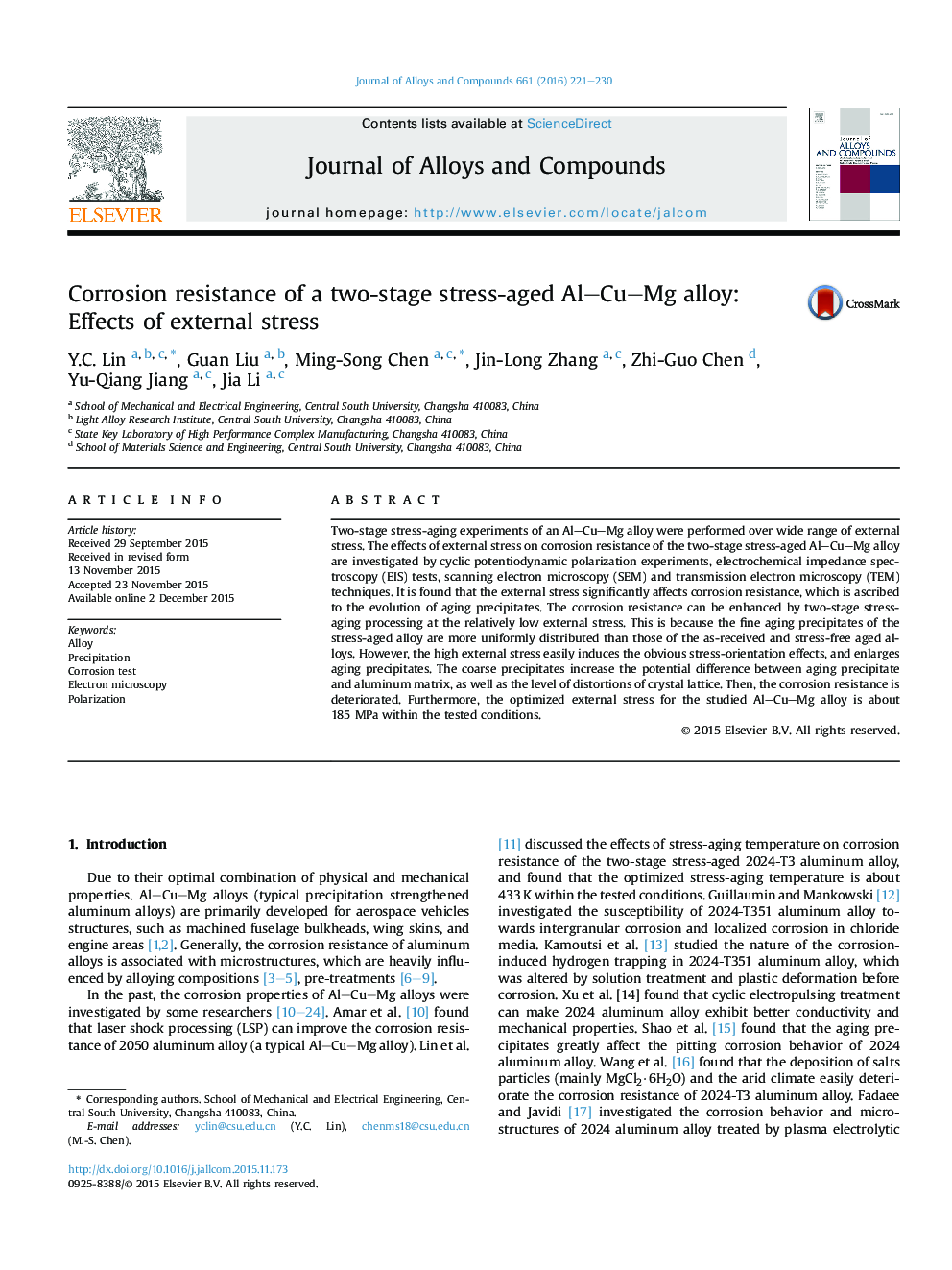| Article ID | Journal | Published Year | Pages | File Type |
|---|---|---|---|---|
| 1607042 | Journal of Alloys and Compounds | 2016 | 10 Pages |
Abstract
Two-stage stress-aging experiments of an Al-Cu-Mg alloy were performed over wide range of external stress. The effects of external stress on corrosion resistance of the two-stage stress-aged Al-Cu-Mg alloy are investigated by cyclic potentiodynamic polarization experiments, electrochemical impedance spectroscopy (EIS) tests, scanning electron microscopy (SEM) and transmission electron microscopy (TEM) techniques. It is found that the external stress significantly affects corrosion resistance, which is ascribed to the evolution of aging precipitates. The corrosion resistance can be enhanced by two-stage stress-aging processing at the relatively low external stress. This is because the fine aging precipitates of the stress-aged alloy are more uniformly distributed than those of the as-received and stress-free aged alloys. However, the high external stress easily induces the obvious stress-orientation effects, and enlarges aging precipitates. The coarse precipitates increase the potential difference between aging precipitate and aluminum matrix, as well as the level of distortions of crystal lattice. Then, the corrosion resistance is deteriorated. Furthermore, the optimized external stress for the studied Al-Cu-Mg alloy is about 185Â MPa within the tested conditions.
Related Topics
Physical Sciences and Engineering
Materials Science
Metals and Alloys
Authors
Y.C. Lin, Guan Liu, Ming-Song Chen, Jin-Long Zhang, Zhi-Guo Chen, Yu-Qiang Jiang, Jia Li,
